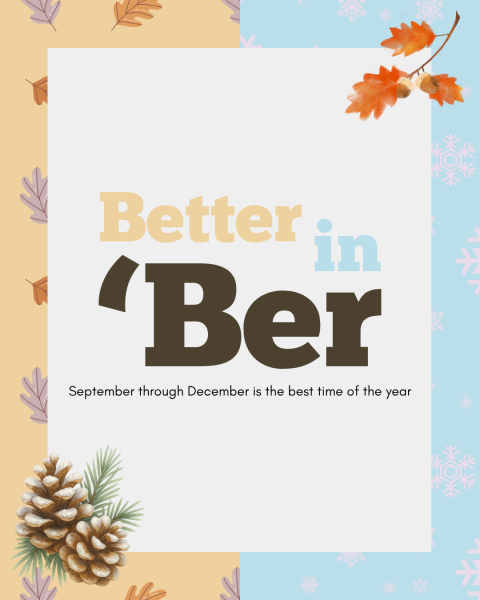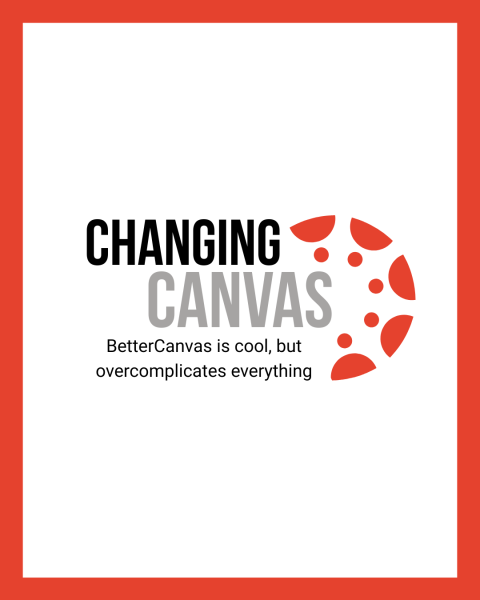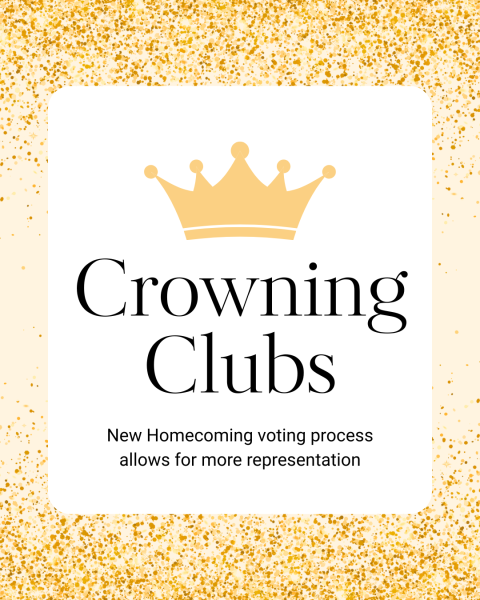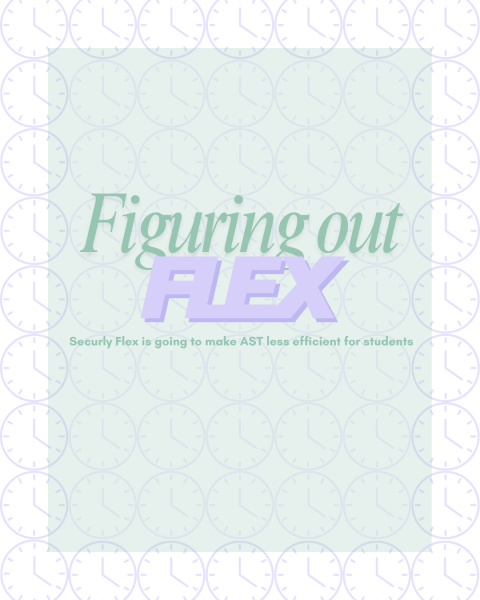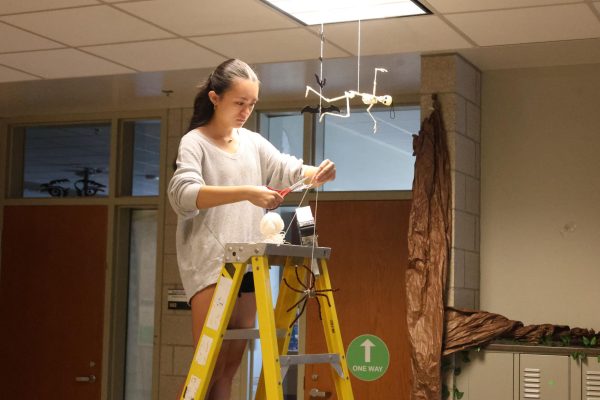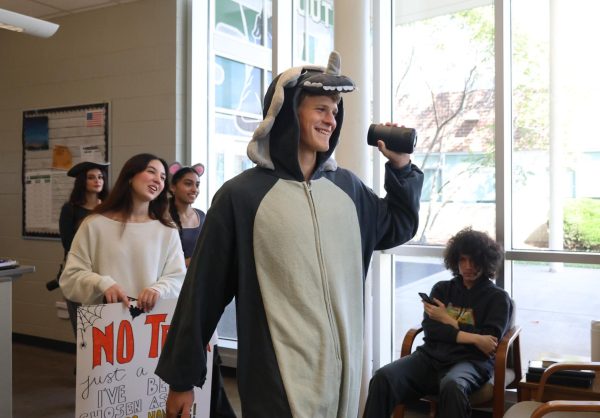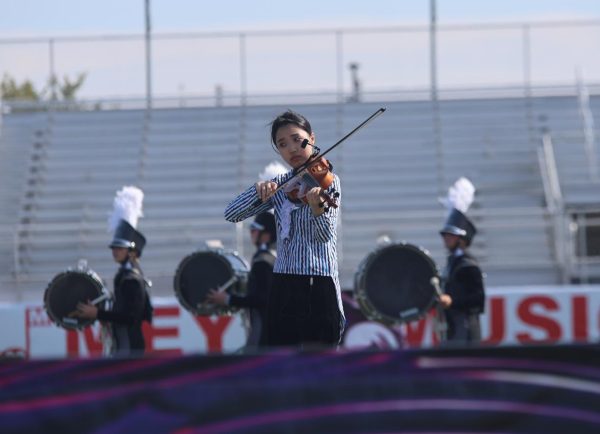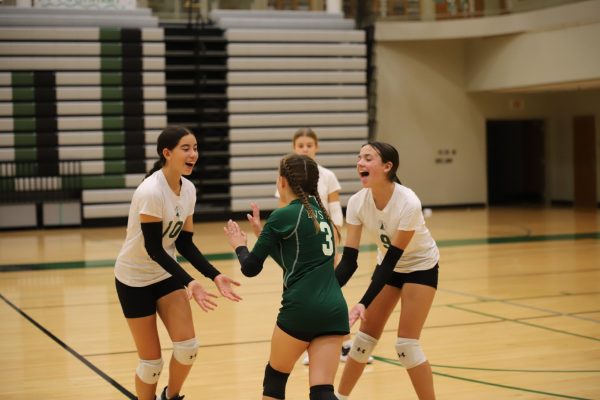Can a nation divided be reunited?
Students should attempt to understand the opposing viewpoints of their peers
Racist. Over-emotional. Indecisive. Republican. Democrat. Independent. Unfair stereotypes are the first thing that come to mind when discussing the political affiliations of our peers. Over the past few years, the political parties in our nation have become more divided than ever. This division is responsible for unfair judgments made toward people based on their political affiliation and the choices of rather extreme members of their political party. Understanding the perspective of others is imperative in order to have open-minded discussions about important political topics, despite how different people’s opinions may be.
Each of us have had different experiences in our lives that have shaped the way we think about absolutely everything, including our political beliefs. After growing up in New York and moving to the Kansas City area, junior Faris Bdair said he would classify himself as an Independent.
“I grew up in New York, which is heavily democratic, and then I moved here which is the opposite,” Bdair said. “I’ve learned both sides of the story which has given me different perspectives. Also, as a person whose parents are immigrants, I take from that because they had to go through the struggle of immigration and build themselves up. So I am heavily influenced from that.”
Similar to Bdair, senior Sara Armstrong said that her upbringing influenced her political beliefs. However, she considers herself to be on the left side of the political spectrum. She said her parents may not agree with her and her sisters politically, but the way they were raised allowed them to discover their own beliefs.
“I think, in general, my parents raised very independent daughters and so even though we don’t always agree on things or they think we’re just naïve, I think we’re able to discuss events in a respectful way in my house,” Armstrong said.
On the opposite side of the political spectrum, senior Mitchell Lenartowicz said having a mother who is a cop and a father who works in the government has led to his conservative beliefs. Not only did his parents influence his political beliefs, but he said living in a place where having conservative ideals was looked down upon only solidified them.
“I used to live in Canada and up there, they’re pretty liberal and moving up there I got picked on a lot for being American and Christian and conservative so that reinforced my beliefs in a way,” Lenartowicz said.
In a survey of 309 students, 74 percent agreed that the 2016 Presidential election affected the political climate at our school. Although it has been two years, the divide between political parties has not improved much. Lenartowicz said he feels that since the election, people have tied their emotions into political conversations. He said this makes it difficult to discuss opposing opinions without harsh arguments.
“A lot of people get more emotionally involved when talking about politics,” Lenartowicz said. “I just feel like that should be something people try to separate. I get it, people are passionate and I think that’s good. If it’s to the point when you get angry at someone just for disagreeing with you, I think that’s when it goes too far.”
However, the only way we can understand the viewpoints of others and build on our own, is to have tough conversations about topics we disagree on. Bdair said he feels it is important to discuss politics so we can learn and be aware of current events.
“I think it’s important to discuss [politics],” Bdair said. “It’s a very important subject, especially with all that’s been happening recently. It’s better to understand and communicate and learn than to just be completely in the [dark].”
In the same survey of students, 62 percent said they feel classmates will judge them based on their political affiliation. Nineteen percent chose “prefer not to respond” when it came down to choosing a political party. To be fair, in high school, it may not always be easy to know what beliefs you agree or disagree with. However, some people still felt they could not choose between right, left, Independent or other when asked on an anonymous survey. This could be because students fear the judgment of their friends and peers.
On the other hand, Armstrong has “never felt uncomfortable discussing [her] political beliefs in school,” but said sometimes she thinks that people may hold back when talking to her. Lenartowicz said he also feels comfortable discussing politics at school.
“[Southwest] is a lot more of a fairly balanced school than what I used to go to,” Lenartowicz said. “It’s a lot more of a comfortable environment to talk about [politics] and people aren’t as insane leaning one way most of the time to where you can’t have a normal conversation.”
Unfortunately, the statistics from the survey reflected that a majority of students may not feel as comfortable to speak up as Bdair, Armstrong and Lenartowicz. In an increasingly divided nation, it is important to remember that everyone has had different experiences in their lives that have shaped their beliefs and ideals. Rather than judging each other for having conflicting opinions, we could all benefit from being open to the ideas of our peers.
“When you have an open mind it’s very useful to have these discussions with opposing viewpoints,” Bdair said, “But if you don’t, it doesn’t accomplish anything.”


